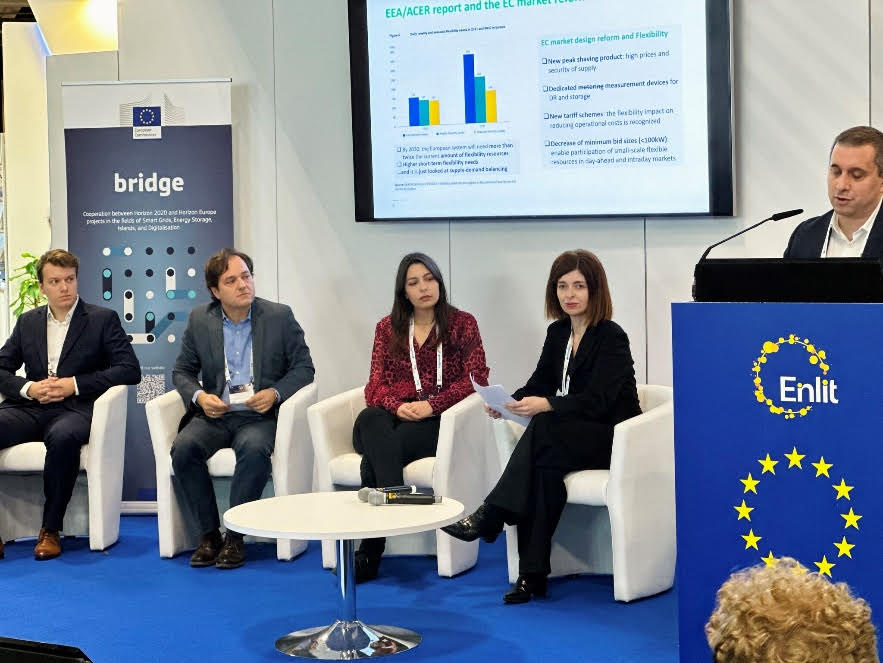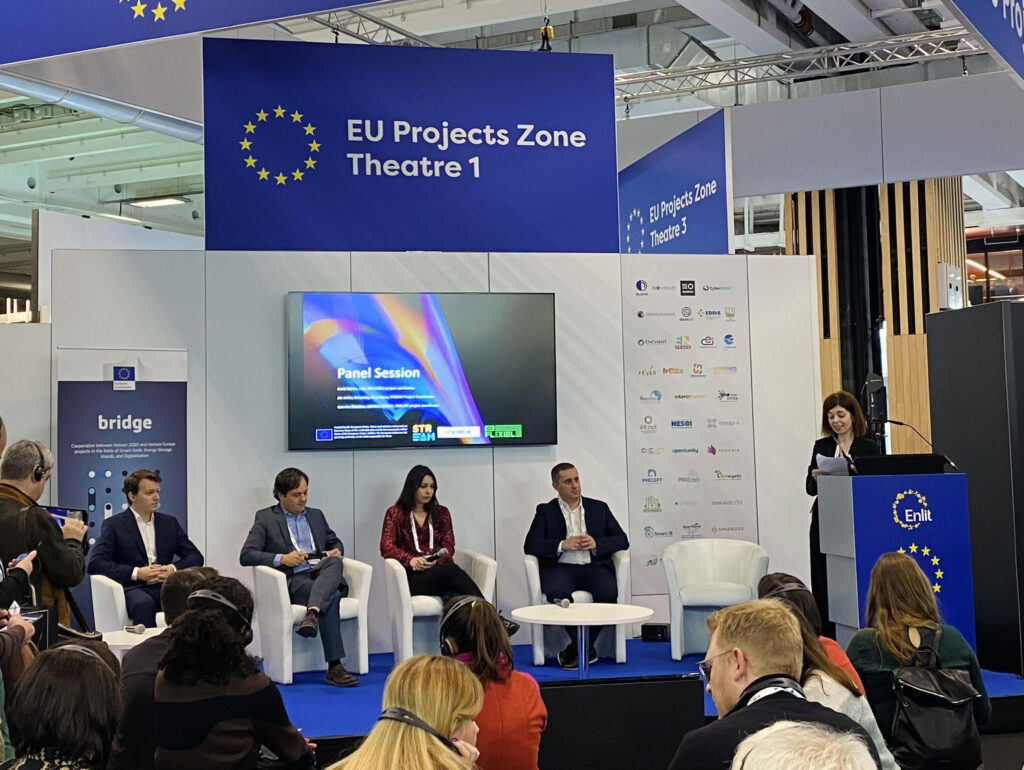
UBITECH ENERGY attended Enlit Europe that was held in Paris from November 28 to 30, representing the ENFLATE project. Within ENLIT, ENFLATE in collaboration with BeFlexible and STREAM projects held a session titled “Unlocking Flexibility Markets: Are Customers Ready to Embrace Innovation?” that attracted over 150 attendees sparking discussions on customer engagement. The panel discussion was moderated by Zabala Innovation Europe and featured speakers with expertise in the energy sector: a) Katerina Drivakou (UBITECH ENERGY), ENFLATE Project Coordinator; b) Fernando David Martin Utrilla (i-DE), BEFLEXIBLE Project Coordinator; c) Jan Jeriha (University of Ljubljana), Stream Project Coordinator; and d) Ricardo Bessa (INESC TEC), Keynote Speaker.
The panel delved into critical topics surrounding flexibility markets, offering valuable insights into the energy sector’s future possibilities. Discussion points included barriers and motivations driving consumer engagement, platform interoperability, and evolving regulatory frameworks. The session emphasized a paradigm shift towards intelligent grid connectivity for consumers, recognizing the demand for incentives, education, feedback, and support in active participation.
Key takeaways from the keynote speaker included the challenge of long-term customer engagement in flexibility markets, the potential of a combination of monetary and non-monetary incentives to unlock flexibility, the need for increased consumer information and energy literacy, and the bottleneck of low voltage grids for decarbonization, requiring new planning and operational paradigms.
The main takeaways from the panel discussion were: a) Customer engagement is crucial for demand response services, however it requires well-designed incentives for consumers, as well as continuous feedback and support; b) Interoperability between platforms, systems, and services is fundamental for fast and cost-effective flexibility exploitation; c) the growing challenge of accommodating new types of services and business models for prosumers and grid operators to facilitate Distributed Energy Resources (DER) integration in the energy system; and d) From a regulatory perspective, integrating the flexibility services to the current energy system is a quite challenging process especially when it comes to the implementation of cost-reflective network charges, the establishment of flexible connection agreements and the market-based procurement of flexibility.
You can find the session’s presentation here




